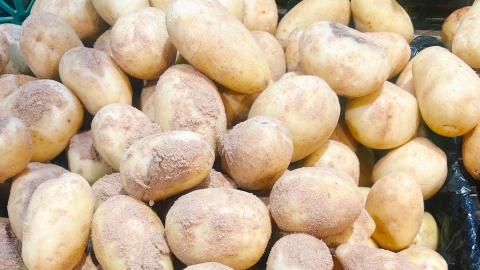Can you still eat a potato that has sprouted 1 millimeter?
Generally, potatoes with sprouts as small as 1 mm should not be eaten. The detailed explanation is as follows:

Once a potato begins to sprout—even slightly—it starts producing solanine, a toxic substance harmful to humans. This toxin is not only concentrated around the sprouting eyes but also spreads into the surrounding flesh, making it difficult to accurately determine the contaminated area by visual inspection alone. Consuming solanine may cause gastrointestinal discomfort such as nausea, vomiting, and abdominal pain. In severe cases, it can affect the nervous system, leading to symptoms like dizziness and fatigue. Even after removing the sprouted parts, residual toxins may still remain in the remaining flesh, making it impossible to guarantee safety for consumption.
When purchasing potatoes, carefully select them and avoid those with sprouts or green discoloration on the skin. Store potatoes at home in a cool, dry, dark place to slow down sprouting. If you notice even tiny sprouts—just 1 mm in size—it's best to discard the potato rather than risk eating it. For households storing large quantities of potatoes, regular inspections are recommended to promptly remove any showing signs of sprouting, preventing toxin spread and cross-contamination of other potatoes.





